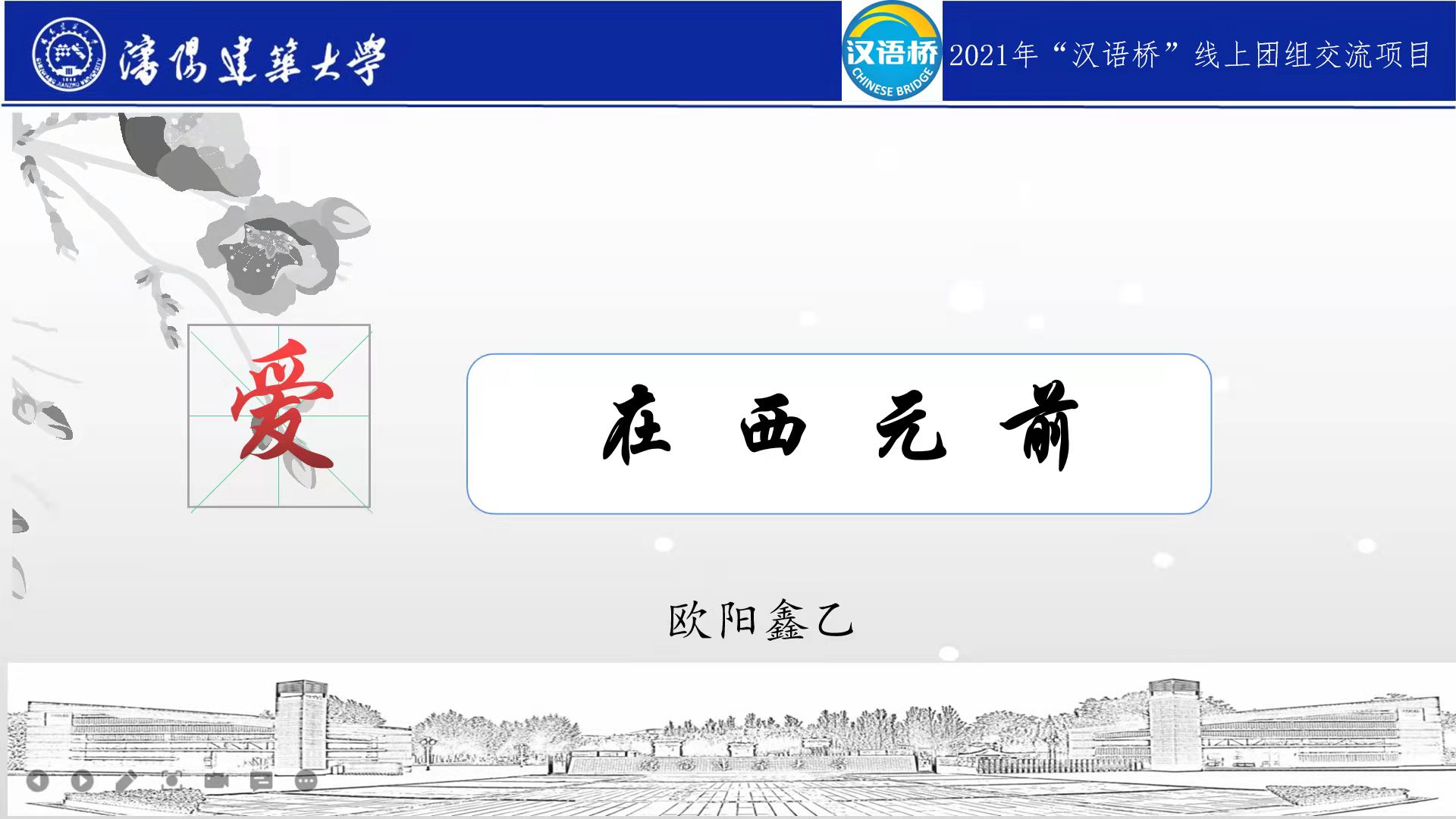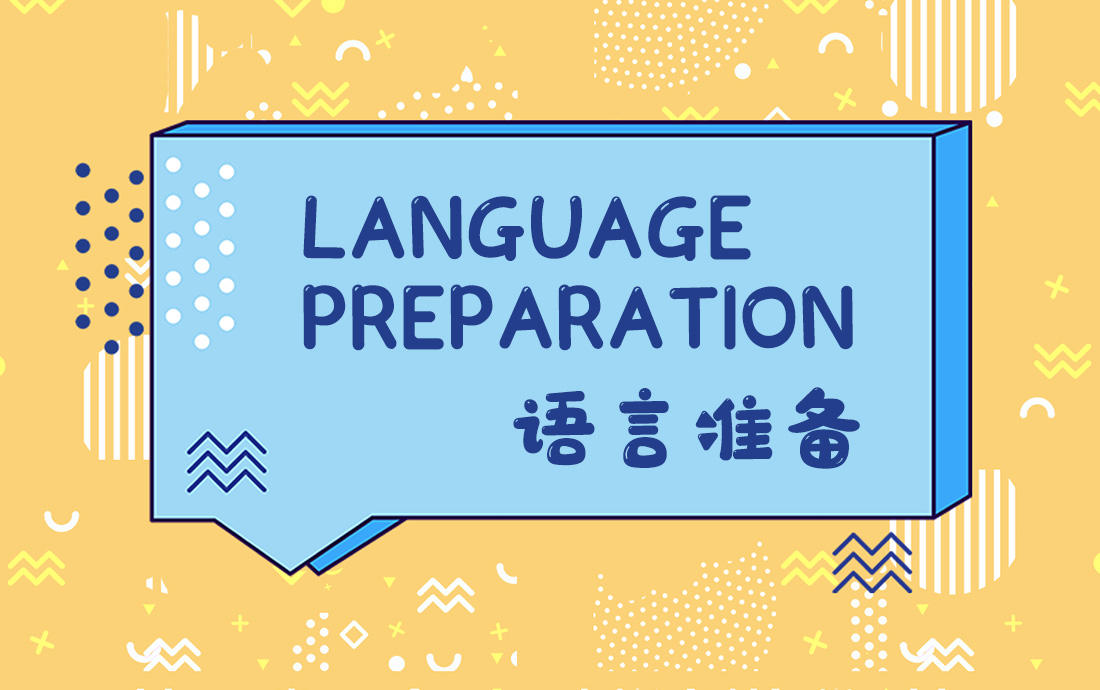Love in BC
爱在西元前

Course Syllabus 课程章节
1“Love in BC”is a course in which "love" is not a affection but a hobby. “B.C.”, namely"Xi Yuan Qian" in Chinese, represents the ancient time. Therefore, the contents of the course mainly focus on the hobbies of ancient Chinese. As the Chinese saying goes, "Etiquette is known when granaries are well stocked, and honor and disgrace are known when food and clothing suffice." The hobbies of ancient Chinese people derived from the fact that ancient China had a well developed and prosperous society with splendid ancient civilization. Various needs and hobbies were nurtured based on the material situation. Chinese people emphasize on body building and pursuing the continuation of life through two ways, one of which is traditional Chinese medicine while the other is martial arts. The essence of so-called martial arts,refers to ceasefire. “Wu” means "to stop fighting". Martial arts, literally means the art of ending wars, the purpose of which is to be self-reliant, self-protective and self-secure. There are many schools of martial arts: the word "Tai Chi" in “Taijiquan” is one of the most characteristic and representative philosophical thoughts in ancient China. The concept of “Taijiquan” is to relax through stillness, static braking and soft cracking, to strengthen the body and prolong life span. Xingyi Boxing reflects the harmonious development of Chinese people with nature, observing things carefully and using it as a way of fitness for their own benefit. When it comes to "Cuju", "ju" refers to the ball with leather cover and rice bran inside. As early as some 2000 years ago during the Warring States Period, Cuju, a recreational game, was popular among the Han people. In the Han Dynasty, someone wrote Twenty-five Pieces of Cuju, which is the earliest book on sports in China and even in the world at large. Later, it became popular to ride a horse and hit the ball into the hole with a bat, called "jiju",as well as “polo”. Playing polo once enjoyed great popularity, which not only became a prevalent sport for emperors and nobles to keep fit, but also played an important role in foreign cultural exchanges.
《爱在西元前》,其中“爱”不是喜爱,而是爱好。“西元前”代表时间非常久远的古代,因此课程内容为中国古人的爱好。
“仓廪实而知礼节,衣食足而知荣辱”,中国古人的爱好依赖于中国古代有非常繁荣发达的社会,拥有灿烂辉煌的古代文明,在这样的物质基础上,人才有了各种各样的需求和爱好。
中国人讲究强健身体,追求生命的延续,一般通过两个途径,一个是中医药,另一个就是武术。
所谓武,止戈为武。武就是“消停战事而来”。武术,是停止战争的技术。目的是为了自立、自保、自安。武术分很多门派:太极拳中“太极”一词,是中国古代最具特色和代表性的哲学思想之一。太极拳理念是通过入静放松、要求以静制动,以柔克刚,用以强身健体、益寿延年。形意拳体现了中国人与自然和谐发展,观察事物细致入微并善用化为对自己有利的健身方式。
“蹴鞠”中“鞠”指外包皮革、内实米糠的球。早在2000多年前战国时期,汉族民间就流行娱乐性的蹴鞠游戏。汉代有人写了《蹴鞠二十五篇》,这是我国乃至世界上最早的一部体育专业书籍。随后,又流行骑马以球棒击球进洞的运动方式,称为“击鞠”,也叫马球。打马球曾风行一时,不仅成为帝王和贵族阶层强身健体的体育运动,在对外文化交流中也发挥了重要作用。





